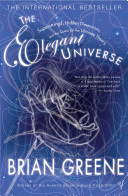Gravity Travels at the Speed of Light
Here's the rub. In Newton's theory of gravity, one body exerts a gravitational pull on another with a strength determined solely by the mass of the objects involved and the magnitude of their separation. The strength has nothing to do with how long the objects have been in each other's presence. This means that if their mass or their separation should change, the objects will, according to Newton, immediately feel a change in their mutual gravitational attraction. For instance, Newton's theory of gravity claims that if the sun were suddenly to explode, the earth-some 93 million miles away—would instantaneously suffer a departure from its usual elliptical orbit. Even though it would take light from the explosion eight minutes to travel from the sun to the earth, in Newton's theory knowledge that the sun had exploded would be instantaneously transmitted to the earth through the sudden change in the gravitational force governing its motion.
This conclusion is in direct conflict with special relativity, since the latter ensures that no information can be transmitted faster than the speed of light—instantaneous transmission violates this precept maximally.
In the early part of the twentieth century, therefore, Einstein realized that the tremendously successful Newtonian theory of gravity was in conflict with his special theory of relativity. Confident in the veracity of special relativity and notwithstanding the mountain of experimental support for Newton's theory, Einstein sought a new theory of gravity compatible with special relativity. This ultimately led him to the discovery of general relativity, in which the character of space and time again went through a remarkable transformation.
Notes:
According to Einstein, overturning Newton.
Folksonomies: physics gravity newton speed of light einstein
Taxonomies:
/science/physics (0.701028)
/law, govt and politics (0.482368)
/business and industrial (0.290703)
Keywords:
special relativity (0.970437 (positive:0.584156)), Newton (0.815654 (positive:0.179017)), mutual gravitational attraction (0.758875 (neutral:0.000000)), successful Newtonian theory (0.647502 (positive:0.667111)), gravity (0.633132 (positive:0.593442)), gravitational pull (0.489632 (positive:0.672963)), gravity claims (0.475027 (neutral:0.000000)), general relativity (0.439071 (neutral:0.000000)), elliptical orbit (0.435974 (neutral:0.000000)), gravitational force (0.426248 (neutral:0.000000)), Light According (0.414765 (positive:0.568462)), light—instantaneous transmission (0.375552 (neutral:0.000000)), twentieth century (0.370520 (neutral:0.000000)), direct conflict (0.366481 (negative:-0.285387)), sudden change (0.362265 (negative:-0.662960)), theory knowledge (0.356094 (negative:-0.662960)), experimental support (0.354650 (positive:0.603194)), new theory (0.330803 (positive:0.793066)), Einstein (0.316888 (positive:0.676213)), special theory (0.314861 (negative:-0.400773)), objects (0.266902 (negative:-0.462556)), sun (0.247079 (negative:-0.640422))
Entities:
Newton:Person (0.940600 (positive:0.217726)), Einstein:Person (0.489042 (positive:0.676213)), 93 million miles:Quantity (0.489042 (neutral:0.000000)), eight minutes:Quantity (0.489042 (neutral:0.000000))
Concepts:
General relativity (0.960724): dbpedia | freebase | opencyc
Orbit (0.589890): dbpedia | freebase
Gravitation (0.583955): website | dbpedia | freebase
Special relativity (0.560940): dbpedia | freebase | opencyc
Gravitational constant (0.545917): dbpedia | freebase
Newton's law of universal gravitation (0.539913): dbpedia | freebase | yago
Newton's laws of motion (0.513260): dbpedia | freebase | opencyc | yago
Spacetime (0.501403): dbpedia | freebase | yago





